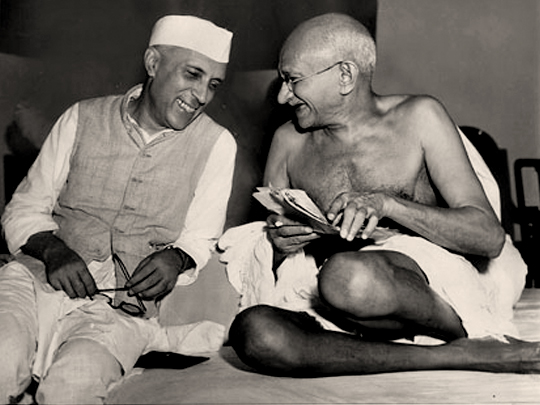By Max Desfor / Wikimedia Commons / CC-BY-SA-3.0 / GFDL
1 – Mahatma Gandhi Assassinated by Nathuram Godse
Mohandas Gandhi, better known as Mahatma Gandhi, was assassinated at the Birla House (now Gandhi Smriti) in New Delhi on 30 January 1948.
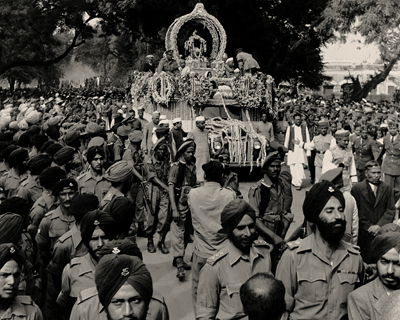
Gandhi was outside on the steps where a prayer meeting was going to take place, surrounded by a part of his family and some followers, when Nathuram Godse, a Hindu nationalist, approached and shot him three times in the chest at close range.
Gandhi was taken back inside the Birla House, where he died.
Prior to his death, there had been five unsuccessful attempts to kill Gandhi, with the first occurring in 1934.
Nathuram Godse and co-conspirator Narayan Apte were sentenced to death by hanging.
A further six conspirators were sentenced to life imprisonment, although Dattatraya Parchure, who had been found guilty was later acquitted on appeal.
2 – State of Eire (Ireland) Declares its Independence
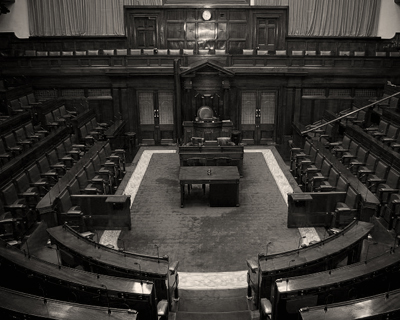
The Republic of Ireland Act 1948 is an Act of the Oireachtas (Irish parliament) which declared that Ireland may be officially described as the Republic of Ireland.
It vested in the President of Ireland the power to exercise the executive authority of the state in its external relations, on the advice of the Government of Ireland.
The Act was signed into law on 21 December 1948 and came into force on 18 April 1949, Easter Monday, the 33rd anniversary of the beginning of the Easter Rising.
The Act ended the remaining statutory role of the British monarchy in relation to the state, by repealing the 1936 External Relations Act, which had vested in George VI and his successors those functions which the Act now transferred to the President.
3 – The Hollywood Ten are Jailed
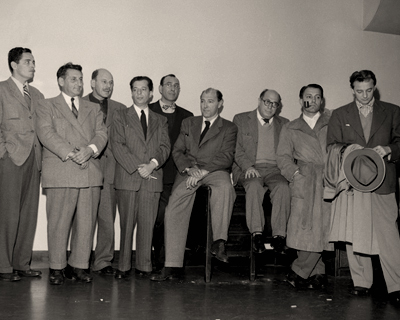
The Hollywood blacklist was the practice of denying employment to screenwriters, actors, directors, and other entertainers following World War II because they were accused of having communist ties or sympathies.
The Hollywood Ten were Alvah Bessie, Herbert Biberman, Lester Cole, Edward Dmytryk, Ring Lardner, Jr., John Howard Lawson, Albert Maltz, Sam Ornitz, Robert Adrian Scott, and Dalton Trumbo.
These men gained infamy by refusing to cooperate with the investigation by the ‘House Un-American Activities Committee’ and denounced the anti-communist hearings as an outrageous violation of their civil rights.
In November 1947, they were cited for contempt of Congress. In April 1948, each man was found guilty and sentenced to spend a year in prison and pay a $1,000 fine. From their prison cells, all 10 men sued their employers for breach of contract.
Negotiating together until well after the last of the Hollywood Ten had been released from prison, the studios finally settled out of court for $259,000, to be shared between them, but not equally.
The blacklist lasted until 1960, when Dalton Trumbo, a Communist Party member from 1943 to 1948, was credited as the screenwriter of the highly successful film Exodus.
He was later publicly acknowledged by actor Kirk Douglas for writing the screenplay for the movie Spartacus. A number of those blacklisted, however, were barred from work in their professions for years afterward.
4 – South Africa Institutionalizes Apartheid
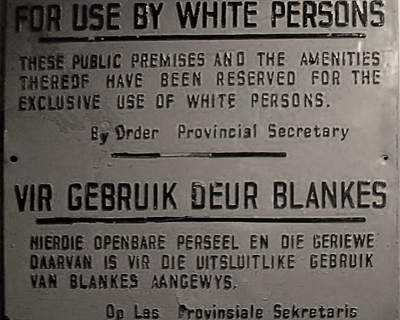
The system of racial segregation in South Africa known as ‘apartheid’ was implemented and enforced by a large number of acts and other laws.
This legislation served to institutionalize racial discrimination and dominance by white people over people of other races.
While the bulk of this legislation was enacted after the election of the National Party government in 1948, it was preceded by discriminatory legislation enacted under earlier British and Afrikaner governments.
Racial segregation had been used for centuries but the new policy started in 1948 was stricter and more systematic.
